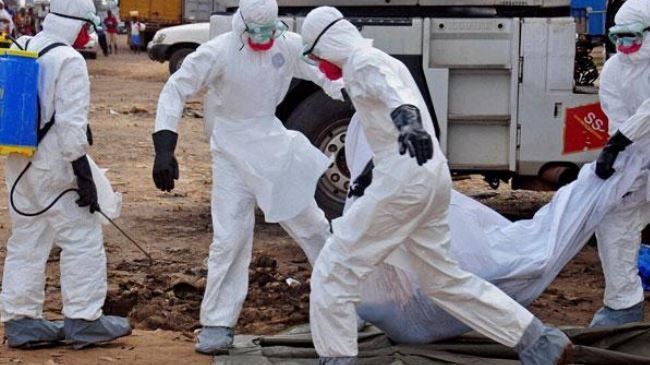Guinea has officially declared that it is dealing with an Ebola epidemic after the deaths of at least three people from the virus.
They – and four others – fell ill with diarrhoea, vomiting and bleeding after attending the burial of a nurse.
Newly developed vaccines will be acquired through the World Health Organization (WHO), officials said.
Between 2013 and 2016 more than 11,000 people died in the West Africa Ebola epidemic, which began in Guinea.
In response to that epidemic, which mainly affected Guinea and its neighbours Liberia and Sierra Leone, several vaccines were trialled, which have since been successfully used to fight outbreaks in the Democratic Republic of Congo.
“The WHO is on full alert and is in contact with the manufacturer [of a vaccine] to ensure the necessary doses are made available as quickly as possible to help fight back,” the AFP news agency quotes Alfred George Ki-Zerbo, the WHO representative in Guinea, as saying.
How did this outbreak start?
A nurse who worked a health centre in Goueké, near the south-eastern city of Nzérékoré, died on 28 January and her funeral was held four days later.
Community funerals, where people help wash the body of the person who has died, can be a key way of spreading Ebola in the earlier stages of an outbreak.
The bodies of victims are particularly toxic. The incubation period can last from two days to three weeks.
Ebola jumps to humans from infected animals, such as chimpanzees, fruit bats and forest antelope. Bushmeat – non-domesticated forest animals hunted for human consumption – is thought to be the natural reservoir of the Ebola virus.
It then spreads between humans by direct contact with infected blood, bodily fluids or organs, or indirectly through contact with contaminated environments.
All those infected at the funeral of the nurse were over the age of 25, health officials say.
Following a crisis meeting on Sunday, the health ministry said all cases had been isolated, contact tracing was ongoing and a treatment centre was to be set up in Goueké.
Source: BBC




